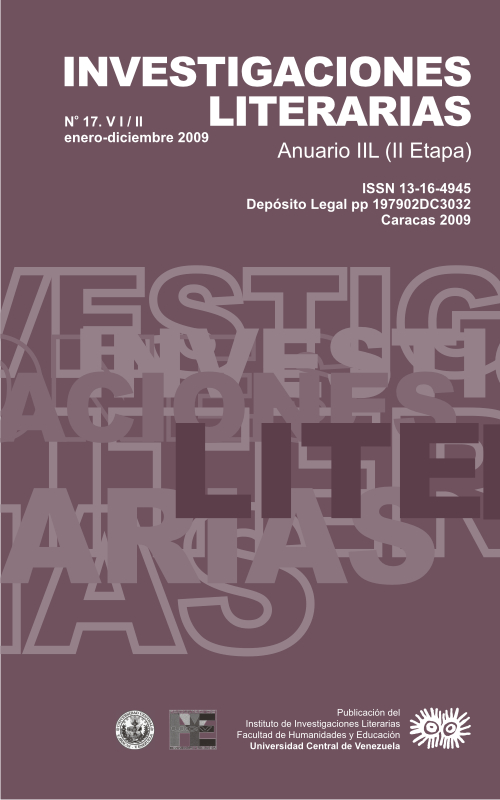JOSÉ ANTONIO RAMOS SUCRE: LA POÉTICA DE LO VAGO Y LO OSCURO
Palabras clave:
poesía, visión simbólica, música interior, poetry, inner music, symbolic visionResumen
La obra de José Antonio Ramos Sucre presenta reflexiones y aforismos dispersos con los cuales se puede armar una condensada concepción de la palabra poética. Nuestro propósito, al reconstruirla e interpretarla, es ver en qué medida pueden establecerse una serie de correspondencias y analogías, en primer lugar, con visiones modernas del arte que se traducen en nueva búsqueda de lo absoluto, o en el aflorar del profundo y místico “río subyacente” (Marcel Raymond) liberado por el Romanticismo, o en la “trascendencia vacua” (Hugo Friedrich); en la palabra pura y esencial; en una Belleza misteriosa, velada, lejana; en la multiplicidad del yo; en lo visionario y alucinatorio más allá de la “rugosa realidad”. En segundo lugar, con algunos de sus textos poéticos como “La merced de la bruma”, “El extranjero”, “Omega” y “Tácita, la musa décima”.ABSTRACT:
José Antonio Ramos Sucre’s work presents scattered reflections and aphorisms through which a condensed conception of the poetic word can be built. Our purpose, when rebuilding and interpreting it, is to see to what extent a series of correspondences and analogies can be established, in the first place, with modern visions of art that are translated into a new search for the absolute, or into the surfacing of the deep and mystic “underlying river” (Marcel Raymond) that was freed by the Romantics, or into the “vacuous transcendence” (Hugo Friedrich); into the pure and essential word; into mysterious, veiled, distant Beauty; into the multiplicity of the self; into the visionary and the hallucinatory that go beyond “rough reality”. Second, with some of his poetic texts such as “The will of the mist”, “The foreigner”, “Omega”, and “Tacit, the tenth muse”.
Descargas
Los datos de descargas todavía no están disponibles.
Descargas
Número
Sección
Artículos

